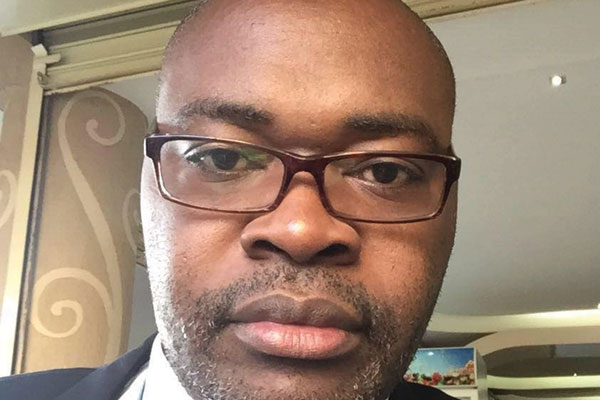
By Tapiwa Gomo
THE primary goal of the evils of colonialism was domination of other societies with the objective to make possible the continuous exploitation of the colonised societies. Underlying these machinations was a wealth accumulation agenda enabling the colonisers to continuously exercise control over other nations.
And these have continued in the form of institutions, global policies and governance systems. Well, some argue it is part of human nature to want to dominate and exploit others.
By the time colonised countries, mainly in Africa, began to be allowed to free themselves, a number of factors had taken effect enabling the former colonisers to perpetually exert control over their former colonies. It has taken Africans ages to wake up to this reality and realise that they are cruising in a boat that is not destined for their destination.
They will not develop as long they do not create and assume control over their own normative.
The first development is that colonisers established stronger domestic economic stocks that would sustain their countries’ economies for centuries. They also ensured uninterrupted inflows of resources from former colonies remained intact and at a lower cost.
These economic stocks are linked to wealthy individuals whose families have major roles to play in shaping national and global economic and political dynamics. It is a personalised global system. For any system to be effective, there must be a powerful human face behind it such as a royal family.
In short, the colonisers’ economies became divided into three categories; the public economy run and facilitated by governments, business institutions which front both individuals and government commercial interests, and private or family-owned business ventures that hold huge leverage in government and business policies. In big Western economies such as the United Kingdom and the United States of America, privately-owned wealth is tied to family inheritance systems which have massive control over global economic and political policies.
- Chamisa under fire over US$120K donation
- Mavhunga puts DeMbare into Chibuku quarterfinals
- Pension funds bet on Cabora Bassa oilfields
- Councils defy govt fire tender directive
Keep Reading
The second development was that by the time colonised countries “liberated” themselves, they had no clue of the real definition of liberation or what they wanted other than assuming that the removal of foreign leadership sufficed. This is why as soon as their independence was proclaimed, they rushed to be embraced by the same systems described above. They thought being part of a rebranded global colonial system was a sign of sovereignty not realising that membership to a group meant ceding power and authority over own affairs.
Nonetheless, acceptance by global and supranational bodies that are under the control of the former colonisers was seen and is still seen as both a blessing and a major achievement. This is regardless of the fact that the conditions that govern these institutions do not favour former colonies as they are still controlled by the same colonial powers to preserve and protect their interests.
In short, colonisers used and abused their power to exploit other societies, they amassed wealth which they used to create a system of global political and economic control to which every society must belong in order to be accepted as a member of the global community. Perhaps, we need to remind ourselves of the intention of such a super and yet sacred global structure.
The primary motivation of Europe and the United States of America’s interaction with other societies in the world — mainly Africa — is exerting power and control in order to amass more wealth. The historical evils such as slave trade and colonisation perpetrated by them on other societies, mainly Africa were purely for economic reasons. That hunger for more wealth is far from abating.
Similarly, the global institutions and governance systems they impose on or encourage former colonies to adopt have nothing to do with improving the welfare of the populations of former colonies but to use the people to weaken their leadership. Again, we all fall for it, because we have not given ourselves a moment to think, reflect and decide on what we want. We wait for policy prescriptions instead of creating our own based on our diagnosis of the situation.
The result of this is simple and there is plenty of evidence. Adopting policies and governance systems developed and imposed by other nations is just one way of ceding and submitting to the whims of that nation. It also means the performance and ability of the leadership of the former colonies are subject to the whims of the former colonisers. It is for the same reason that the assessments of governance, accountability and adherence to democracy are performance indicators used by Western agencies to endorse or disapprove of another nations’ leadership.
And these are only mentioned when the economic interests of the West are threatened. Where Western economic interests remain safe and intact such as in South Africa, issues of governance, accountability and adherence to principles of democracy are never raised even when the poverty levels among black people are deepening and the gap between the rich and poor is widening.
And again, the relationship between Western interests and former colonised societies is one of organised crime — the theft and exploitation of formerly colonised people’s labour, natural resources and land under the guise of various narratives and policies such as democracy, rule of law, employment, consumerism and other nice-sounding rhetorics. If the West is happy to see an African country develop, we must see more efforts to stabilise Ethiopia and less demonisation of Rwanda’s leadership, countries that have shown that it is possible to improve the welfare of their people.
- Tapiwa Gomo is a development consultant based in Pretoria, South Africa. He writes here in his personal capacity.











